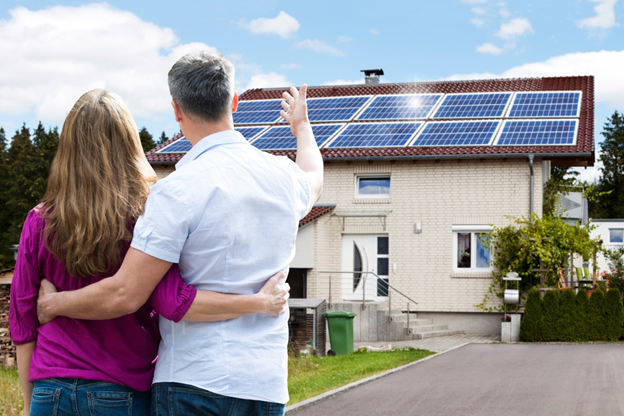Are you drowning in utility bills no matter how much you do around your home to lower the price? If so, installing solar panels could be the solution you need.
When you install solar panels at home, you benefit from helping your bank account and helping the environment. Although solar is a major upfront investment for many, the long-term benefits are worth the cost.
So, how much does it actually cost to install solar panels? Keep reading to find out.
How Much Do Solar Panels Cost?
The price to install solar panels depends on various factors, the main ones being:
- Average energy usage and utility costs
- Roof solar potential (how much sun your roof receives)
- Local solar system costs
- Local labor costs
- Local rebates and incentives for solar
Because of the different conditions, the price of solar panel installation varies state by state.
The good news is that the price of solar panels drops every year because of new incentives that come to life. In fact, the cost of solar PV panels has dropped by almost 70% since 2014.
Plus, many agree that the best way to save on utilities and energy is by installing solar panels.
Let’s break down the cost of home solar panels based on a few factors:
Cost by Size
There are different residential solar panels based on the size of the system you need. The size of the system is determined by how much energy your home uses.
An average home uses 905 kWh per month or 10,850 kWh per year in electricity. To reduce utility bills, the average home with a decent amount of sunshine throughout the year can install a 5 or 6 kW solar panel system.
A 5 kW system costs on average $14,800 while a 6 kW system costs around $18,500 on average.
The cheapest solar panel size is 2 kW costing up to $6,000. If you have a larger home with more energy usage, you could find yourself needing an 8 kW sized solar system costing around $24,500.
Additional Solar System Cost Variables
It’s hard to dictate how much the additional costs of solar systems will be because they are changing variables. For instance, labor costs for solar installation vary depending on the area you live in.
Other solar system cost variables include solar mounts and solar inverters. There are different options for solar mounting but you will need this feature to hold your residential solar panels.
A solar inverter is necessary to transform your direct current power (DC) to the alternating current (AC) that you can start using in your home.
Your city or state might require you to get local permits that require a fee. Inspection fees might also be necessary.
The silver lining is that all of these costs go down if your state or city offers solar rebates and incentives. A good percentage of the cost for the different types of solar panels will be lower if this is the case.
Should You Install Solar Panels?
Installing solar panels at home is more readily available and convenient for the average homeowner these days. The price has drastically decreased from past years but still can cost somewhere in the thousands.
Different factors dictate if you should install solar panels on your home. The main factor to look at is how much sunlight your roof receives and if it is sufficient enough to reduce your utility bills.
In most cases, installing a solar system is worth it but the choice is yours. For more advice on home financial decisions, check out the other posts on our blog.

